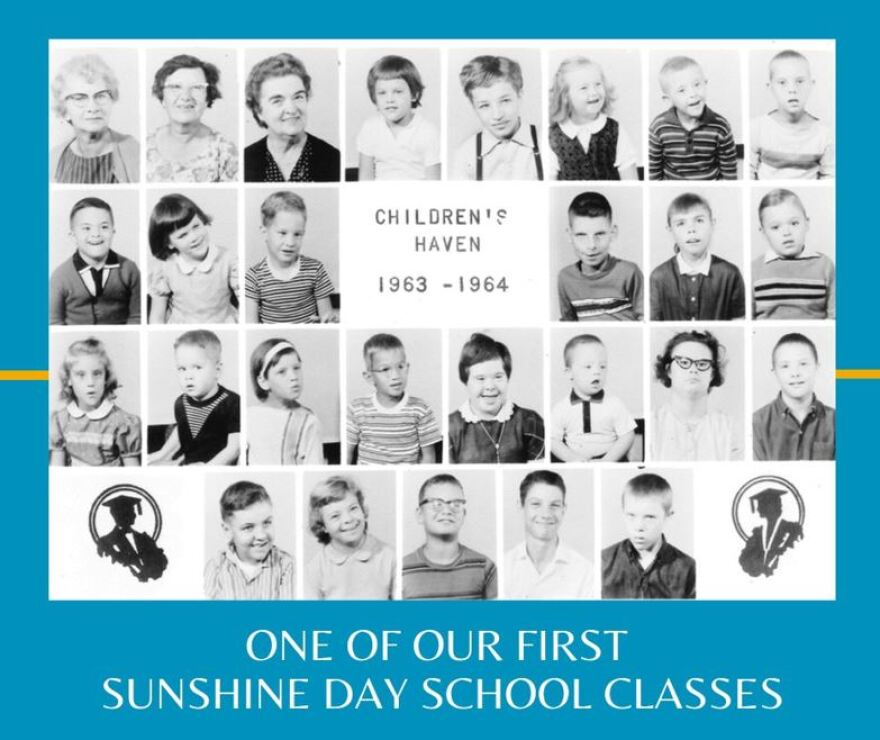Kelly Askerud held her breath as she sat in her living room one Saturday morning in 2015, waiting for her daughter, Mackenzie Holland, to answer a question that would change their family’s lives.
Relief washed over her as Holland responded, “When do I get to move in?”
Askerud had just asked if her daughter wanted to move into a group home at The Haven, a non-profit organization that began providing services for members of the disabled community in 1954. Holland, now 36, experiences a seizure disorder and developmental delays that Askerud says leave her vulnerable, despite her upbeat social demeanor and sharp memory.
Now, nearly eight years later, Askerud — who serves as President for Friends of the Haven — says Holland loves living at The Haven. Holland had been a client of the organization’s day program during the summers since her family began visiting the area from Minnesota in 2011, but space opened up in the residential program when The Haven released plans to build a new house on their campus in 2016.
“So now what you have is this generation of people with disabilities outliving their parents ... We’re seeing a huge shift in families really starting to say ‘oh gosh I’ve got to find something for my child.’ ”Haven Chief Operating Officer Alison Thomas
Holland’s move to The Haven put an end to the family’s days being bookended by pick-ups and drop-offs, and both Holland and her parents had more freedom to be independent, although the change did not come without its worries.
Askerud and her husband Rick were nervous to broach the topic with her daughter, saying that like many individuals with disabilities, Holland likes to stick to a schedule. But their fears melted away when Holland responded with enthusiasm.
“She was ready, and I think her readiness made me feel better about it,” Askerud said. “And then it was an exciting time for our family.”
As a member of The Haven’s residential program, Holland has access to 24/7 staff who assist residents with aspects of their daily lives as needed. This can include social skills, cooking, cleaning, self-care and hygiene, safety skills and much more. Residential services also offer assistance with health care management, medication management, money management, and transportation.
Along with their residential program, The Haven offers a multitude of services including education, job training and daily care. This includes the Selby Preschool, the Haven Academy and an Adult Day Training program.
The preschool teaches typically developing children and children with special needs together while the academy serves students aged 14-22 by utilizing the Unique Learning System, a one-of-a-kind program designed specifically for students with complex learning needs.
The Adult Day Training program provides participants with employment services, and many are able to hold part-time jobs with partnering local businesses. The Haven also employees their own clients for a multitude of positions such as janitors, lawn care workers and members of their culinary team.

The Haven began in 1954 as the Sunshine Day School with four students and a teacher in a hangar at the Sarasota-Bradenton airport and now serves around 650 individuals every year on a 32-acre campus in north Sarasota County. To celebrate its upcoming 70th anniversary, The Haven is expanding its residential program by building two new group homes.
The new homes will allow an increase in permanent resident population from 52 to 68, although they still have nearly 300 individuals on the waitlist.
“So now what you have is this generation of people with disabilities outliving their parents ... We’re seeing a huge shift in families really starting to say ‘oh gosh I’ve got to find something for my child,’ ” said Haven Chief Operating Officer Alison Thomas. “And honestly, there’s just not enough programs. There are not enough housing. It’s just sort of a housing desert for this particular population.”
Thomas said their residential program means a home for life, with the monthly cost starting at $3,000.
However, she notes that the majority of participants apply for a waiver provided by the state Agency for Persons with Disabilities.
There are currently over 22,000 Florida residents on the waitlist for a waiver, and Askerud said her family spent seven years waiting for her daughter’s waiver, finally receiving the financial help last year after applying in 2015.
Click here for more information on The Haven. For more information on the APD, click here.
Sarah Owens writes about DeSoto County for the Community News Collaborative. Reach her at slowens@cncfl.org




